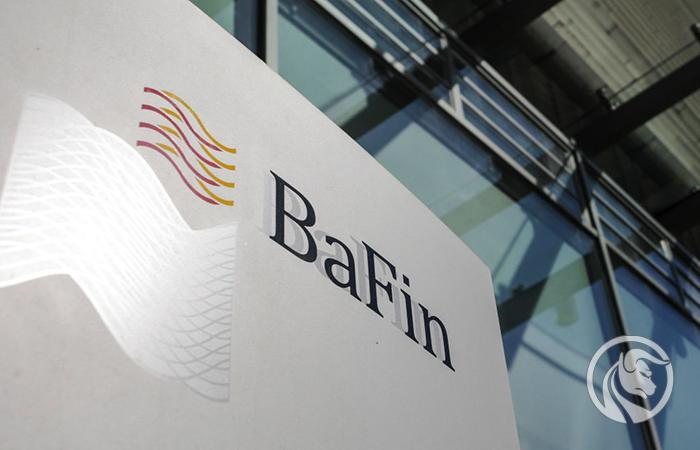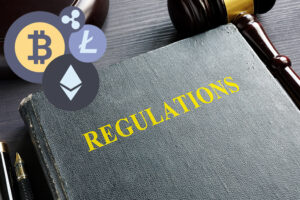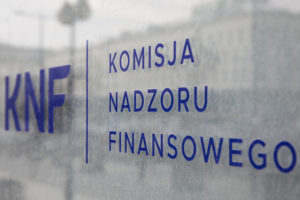BaFin - the guardian of the German financial market
BaFin is short for Federal Financial Supervisory Authority, i.e. the Federal Financial Supervisory Authority. The agency in question acts as a "guardian" of the German financial sector. It is worth adding that the institution is subordinate to the Federal Ministry of Finance. It is an independent federal institution with headquarters in Bonn and Frankfurt am Main, with more than 2 employees. BaFin's task is to supervise over:
- 1600 banks,
- 700 institutions offering financial services,
- dozens of payment companies,
- 500 insurers,
- 30 pension funds,
- 6300 investment funds,
- 400 asset management companies.
The history of the institution dates back almost 20 years. BaFin was founded on May 1, 2002 as a result of the adoption of the FinDAG (Gesetz über die integrierte Finanzaufsicht) Act of April 22, 2002. The institution was created as a result of the integration of three offices:
- Federal Banking Authority,
- Federal Office for Securities Trading,
- Federal Insurance Market Authority.
What does BaFin do
BaFin deals with the supervision of banks, credit institutions, insurers, brokerage companies and stock exchanges. The institution's goal is to ensure the stability and transparency of the German capital market.
Since 2003, due to changes in the Banking Act (KWG), BaFin has been monitoring the financial condition of financial institutions. It also collects detailed information about financial institutions. It shares its responsibilities with the German central bank (Bundesbank).
The financial institution must provide BaFin with information regarding:
- Financial reports and audits,
- Monthly reports on loans and credits,
- Information on meeting liquidity and solvency requirements.
All information is assessed in close cooperation with German central bank. Additionally, BaFin may order special tests (e.g. concerning the fulfillment of capital requirements), which are carried out after consultation with the Bundesbank.
According to German law, BaFin has the right to impose penalties on supervised companies. The arsenal of penalties is very wide, ranging from a written warning, to financial penalties, to taking a license (e.g. a banking license).
BaFin also collects data on securities transactions, which are designed to detect market anomalies that may result from insider dealing (insider trading).
Check it out: List of warnings of public regulators
Organization structure
BaFin is governed by a council that consists of the president and four directors. The president of BaFin is Mark Bransonwho was born in the United Kingdom and was educated there. Between 1994 and 2009, he held various positions at banks such as UBS and Credit Suisse. Between 2010 and 2021, he worked in a Swiss institution regulating the local financial market - FINMA. Mark Branson was appointed President of BaFin in August.
Four directors who are responsible for different areas of activity. These are:
- Raimund Roseler, is responsible for controlling the banking sector.
- Dr. Thorsten Pötzsch, deals with the supervision of securities.
- Dr. Frank Grundwhich is responsible for insurers and pension funds.
- Beatrice Freiwaldwhich deals with the control of administrative and legal activities.
Of course, the organization itself also has departments that specialize in specific regulatory areas, e.g. "Anti-money laundering" or prevention "Insider dealing".
BaFin and stock trading
BaFin can also restrict your trading in financial instruments. This was the case in 2008, when the institution banned short selling on 11 German financial companies. This applied to companies such as Aareal Bank, Allianz, AMB Generali, Commerzbank AG, Deutsche Bank, Deutsche Börse, Deutsche Postbank, Hannover Re, Hypo Real Estate, MLP AG and Munich Re. The ban lasted until January 31, 2010.
However, it was not the last interference in the financial market. On May 19, 2010, in response to the debt crisis in the European Union, the institution banned "naked short selling" on CDS (Credit Default Swaps) on government bonds until March 31, 2011. The ban on naked short selling was also introduced on selected German banks and they insured. The most recent short selling ban applied to Wirecard shares in 2019. The reason was the outbreak of an accounting scandal involving Wirecard.
The Wirecard case
In 2020, "the pearl in the crown" the German fintech market caused a collapse due to an accounting scandal. The scandal broke out after an independent audit firm discovered a hole of € 2bn. As a result, the Federal Financial Supervisory Authority (BaFin) was in the heat of criticism. The office was criticized by the media and politicians of the German opposition for being slow and ignoring the "warnings" appeared in some press and short sellers' reports. German banks (eg Commerzbank) also sent their objections to Wirecard. In 2020, some Wirecard customers announced that they would file a lawsuit against BaFin over Wirecard's inadequate oversight. As a result of the scandal, January 29, 2021 took place resignation of the BaFin chairman - Felix Hufeld and a director responsible for supervising securities - Elisabeth Roegele.






















![Forex Club – Tax 9 – Settle tax on a foreign broker [Download the Application] Forex Club - Tax 9](https://forexclub.pl/wp-content/uploads/2024/02/Forex-Club-Podatek-9-184x120.jpg?v=1709046278)
![Trading View platform – solutions tailored to the needs of traders [Review] trading view review](https://forexclub.pl/wp-content/uploads/2024/03/trading-view-recenzja-184x120.jpg?v=1709558918)
![How to connect your FP Markets account to the Trading View platform [Guide] fp markets trading view](https://forexclub.pl/wp-content/uploads/2024/02/fp-markets-trading-view-184x120.jpg?v=1708677291)
![How to invest in ChatGPT and AI? Stocks and ETFs [Guide] how to invest in chatgpt and artificial intelligence](https://forexclub.pl/wp-content/uploads/2023/02/jak-inwestowac-w-chatgpt-i-sztuczna-inteligencje-184x120.jpg?v=1676364263)




![Izabela Górecka – “Success on the market depends not only on knowledge, but also on emotional stability” [Interview] Izabela Górecka - interview](https://forexclub.pl/wp-content/uploads/2024/04/Izabela-Gorecka-wywiad-184x120.jpg?v=1713870578)
![WeWork – the anatomy of the collapse of a company valued at $47 billion [WeWork, part II] wework bankruptcy story](https://forexclub.pl/wp-content/uploads/2024/04/wework-bankructwo-historia-184x120.jpg?v=1711729561)
![Adam Neumann – the man who screwed up Softbank [WeWork, part AND] adam neumann wework](https://forexclub.pl/wp-content/uploads/2024/04/adam-neumann-wework-184x120.jpg?v=1711728724)




![The most common mistakes of a beginner trader - Mr Yogi [VIDEO] Scalping - The most common mistakes of a beginner trader - VIDEO](https://forexclub.pl/wp-content/uploads/2024/03/Scalping-Najczestsze-bledy-poczatkujacego-tradera-VIDEO-184x120.jpg?v=1711601376)
![Learning patience: No position is also a position - Mr Yogi [VIDEO] Scalping - Learning patience - No position is also a position - VIDEO](https://forexclub.pl/wp-content/uploads/2024/03/Scalping-Nauka-cierpliwosci-Brak-pozycji-to-tez-pozycja-VIDEO-184x120.jpg?v=1710999249)
![When to exit a position and how to minimize losses - Mr Yogi [VIDEO] Scalping - When to exit a position and how to minimize losses - VIDEO](https://forexclub.pl/wp-content/uploads/2024/03/Scalping-Kiedy-wyjsc-z-pozycji-i-jak-minimalizowac-straty-VIDEO-184x120.jpg?v=1710336731)



















Leave a Response